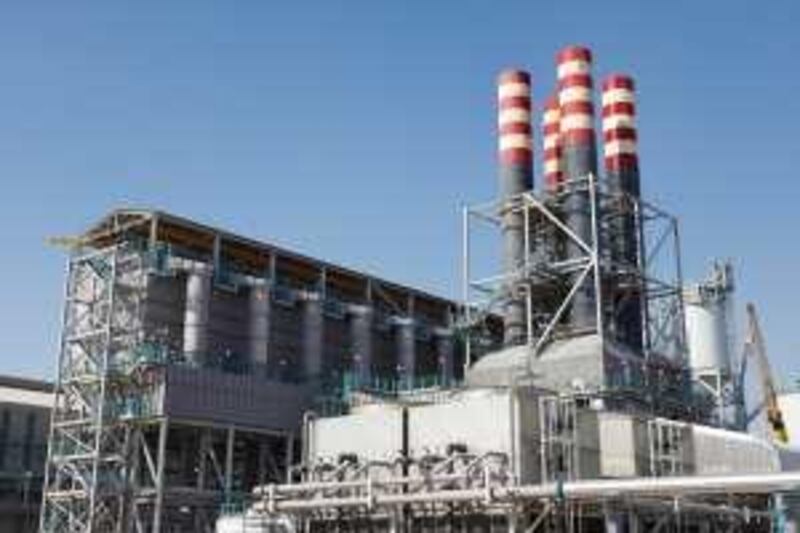Norway's economic policy towards the GCC is a vastly understudied topic. Norway, like the rest of the world, is interested in the region for economic reasons and because of its strategic location.
Oslo is linked with the region because of its extensive use of sovereign wealth funds that some GCC states have made famous. The visit of the Norwegian crown prince Haakon Magnus last week to the UAE and Qatar helped shed some light on the links. The crown prince was accompanied on his visit by nearly 100 people, including politicians and business officials from more than 80 large companies, all of which are significantly influential.
The size and scope of this group highlighted the huge potential for an expanding relationship across a number of sectors. This visit was a statement of intent of Norway's perspective on its role in relation to the GCC. It also focused attention on the free trade agreement between the GCC and the European Free Trade Association, which is in the ratification stage. The crown prince and his entourage helped to highlight the agreement as well as the plans of Norwegian companies to increase investment in the GCC.
For its part, the UAE is to soon open an embassy in Oslo, which will increase Emirati exposure to Norway. Growing links between Norway and the UAE will also increase understanding of each other's culture and business philosophies, while paving the way for increased economic and cultural exchanges. From an economic point of view - which is beginning to take more emphasis in modern foreign policy - Norway is widely represented in the Middle East.
Norsk Hydro, the fourth-largest aluminium company in the world, is developing Qatalum in Qatar. Hydro, the main shareholder of which is the Norwegian government, is looking for more investments in the GCC infrastructure. Qatalum is the biggest aluminium plant in the world and is also the base for expansion into the GCC and Asia. In addition, the project helps Qatar diversify its assets in the long term and reduce its dependence on natural resources.
There is also talk of future projects in the Gulf based on non-renewable energy sources in an attempt to deal with climate change. This emphasis on long-term, non-renewable energy sources is part of a global plan that includes both the UAE and Norway to reduce greenhouse emissions. Natural resources are vital to the prosperity of both countries and oil is another link between them. Many Norwegian oil companies are working in the GCC as well as in Iraq.
And with a major tender deadline for UAE drilling in 2014, it is expected that these companies will make additional investments. Already, Norway's State Oil Company and Abu Dhabi National Oil Company are looking to set up a joint venture to improve oil and gas exploration and technologies. The countries also share a perspective on their future prosperity. Much like the GCC states, Oslo puts the profits from its oil reserves, both abroad and in Norway, into a sovereign wealth fund.
The Norwegian National Oil Fund, which was valued at an estimated US$365 billion (Dh1.34 trillion) last year, is the world's largest sovereign wealth fund after those of Abu Dhabi and Saudi Arabia. As of last August, Norway's sovereign fund held 1 per cent of all global stocks. The vitality of the relationship between Norway and the UAE is demonstrated also by the growth of 334 per cent in bilateral trade from 2005 until last year. The countries share similar energy challenges.
While both have large reserves of oil and gas, each can secure its energy and economic security for generations by reducing national consumption. The UAE and its GCC neighbours can also look to the example of Norway as the country looks abroad for petroleum deposits, as well as other forms of energy, as domestic oil production has reached its peak. Moreover, both nations are deeply committed to reducing greenhouse emissions. Norway has installed several wind-generating projects along its western coastline and more projects are in the planning stage.
Norwegian authorities, like those in the Emirates, are also looking at solar projects to help ensure the country's energy future. Norway is also undertaking research in geothermal energy. Joint ventures between the GCC and Norway will help project the nations as leaders within a field that will only grow in importance. Norway's emphasis on its economic role in the Middle East is a beacon of its goodwill that helps enhance its diplomatic sphere of influence.
Oslo's position as a neutral power in the Middle East peace process benefits from its prominence in the region. On a diplomatic level, Norway seems to have adopted a progressive active approach. Its neutral and passive diplomatic view helps the country to forge lasting relationships. These relationships have been strengthened by the country's economic stability. Norway views the GCC as a politically stable and business-friendly environment, as well as the trade connection between Asia and Europe.
Dr Theodore Karasik is director of research and development at the Institute for Near East and Gulf Military Analysis in Dubai, and Arne Elias Corneliussen is the chief executive of Norwegian Risk Council International, the advisory firm based in Oslo





